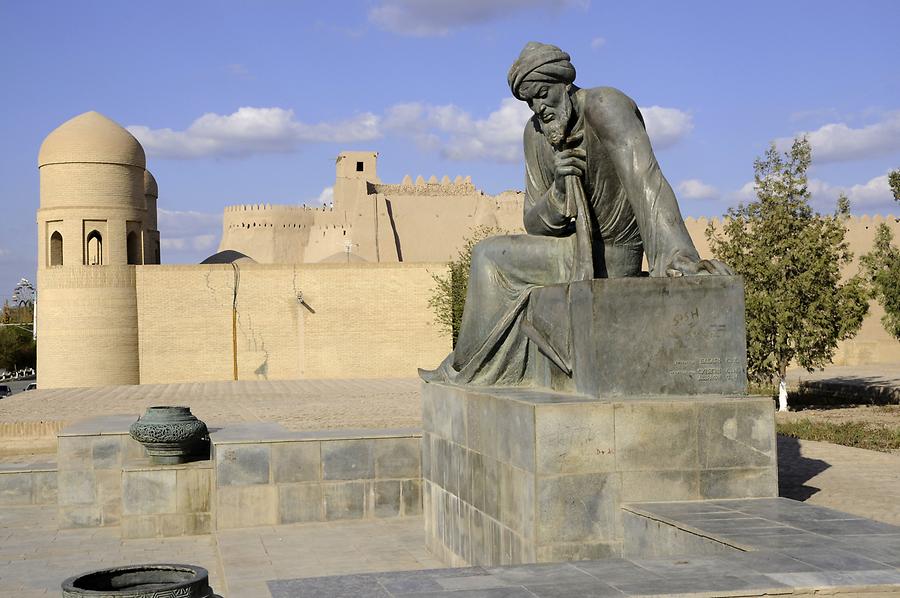Statue of Al-Biruni#

Statue of Al-Biruni, October 2008, © Gerhard Huber, under CC BY-NC 4.0 +Edu
At the gates of Khiva, a monument reminds of the scholar Al-Biruni, who was born here in 973 and already then represented the heliocentric philosophy. Already centuries before Copernicus, he taught that the sun is the centre of our planetary system and not the earth. He also determined the radius of the earth with an accuracy of 99.5%. More than a thousand years ago, Khiva, too, was one of the world's most important centres of scholarship, centuries ahead of the European world of thought. The tolerant Islam of the Middle Ages, believing in progress, created a cosmopolitan climate in Central Asia, where art and science flourished without parallel. In European history books, however, there is hardly a footnote.
Vor den Stadttoren Chiwas erinnert ein Denkmal an den Gelehrten Al Biruni, der 973 hier geboren wurde und schon damals das heliozentrische Weltbild vertrat. Jahrhunderte vor Kopernikus lehrte er, dass die Sonne und nicht die Erde im Zentrum unseres Planetensystems steht. Zudem bestimmte er den Radius der Erde mit einer Genauigkeit von 99,5 %. Auch Chiwa zählte vor mehr als 1000 Jahren zu den wichtigsten Gelehrtenzentren der Welt, dem europäischen Denken damals um Jahrhunderte voraus. Der tolerante und fortschrittsgläubige Islam des Mittelalters schuf in Zentralasien ein kosmopolitisches Klima, in dem Kunst und Wissenschaft eine beispiellose Blüte erlebten. In europäischen Geschichtsbüchern findet sich dazu jedoch kaum eine Fußnote.